Chinese property market: Second wind or brief respite?
Over the last two years, the Chinese property market suffered a downturn and this has had a knock-on effect on the country's economy. In recent weeks, the government has loosened restrictions and rolled out policies to make it easier for the public to buy houses and to boost property sales. Is this a turning point for the Chinese property market? Will the government's mantra that "houses are for living in, not speculation" take a back seat henceforth? Zaobao correspondent Yu Zeyuan reports.
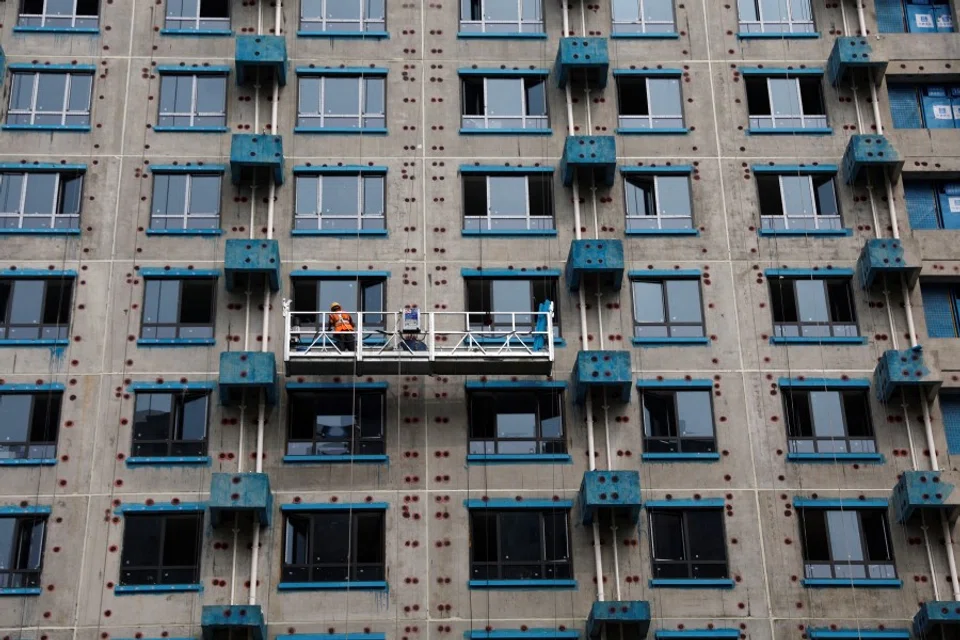
Sixty-year-old Beijing resident, Mr Zhao, has been somewhat anxious over the last few days as he and his wife fret over whether to sell one of their properties.
Zhao has two residential properties in Beijing, one within the city in the 4th Ring Road and another in the suburb of Tongzhou district. As both he and his wife are close to retirement, Zhou decided to put his house in the city up for sale in June and live in their Tongzhou house after retiring.
Two real estate agencies listed the property at an asking price of over 10 million RMB (US$1.37 million); while there have been viewings and price negotiations in the last couple of months, the offers are not what he has in mind.
After the Beijing authorities announced on 1 September the loosening of rules to allow people to buy homes as long as all members of the household do not own a home in a particular city, there was a sudden increase in the number of people who came to view Zhao's place. Two offers even matched his asking price, but he is now hesitant.
He said, "My property agent is urging me to sell quickly, but the media is saying that home prices in Beijing may rise further after the new policy announcement. Now, we are worried that it may not be the best time to sell and are thinking of waiting. What if there is a 'Golden September and Silver October' boom this year?"
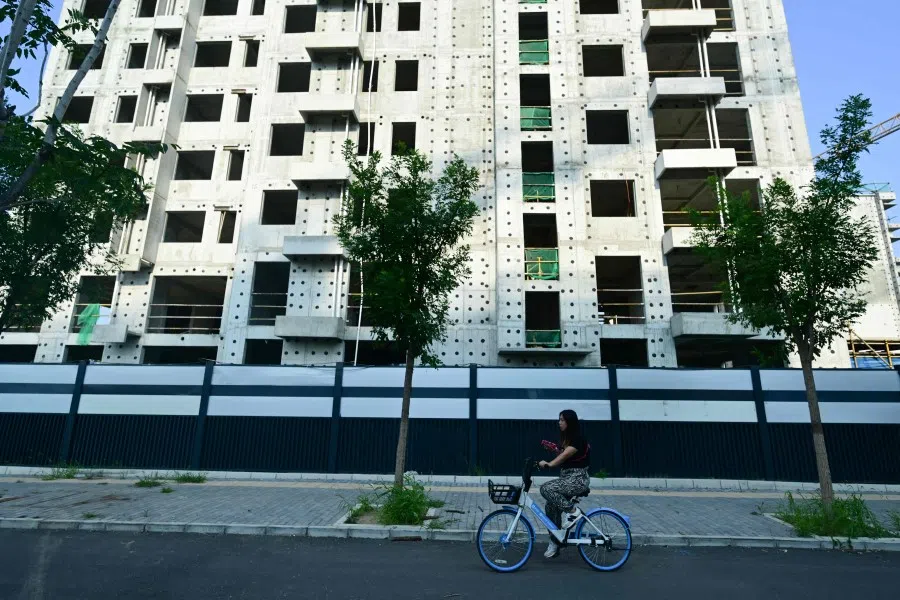
A sales manager of a real estate agency in Beijing said since spring this year, the property resale market in Beijing has been quiet, with prices and transaction volume both down from the previous quarter. After the new government policy was rolled out towards the end of August, there was a palpable increase in enquiries from potential buyers, giving sellers like Mr Zhao more choices and the option of waiting to see whether there will be a peak in September and October.
... the intent of the new government policy is to expand the pool of eligible first-home buyers through relaxing the qualifying criteria...
Encouraging first-home sales
The so-called "Golden September and Silver October" in the Chinese property market refers to the peaking of sales in those two months amid the crucial last four months of the year.
However, in the past two years, the impact of the pandemic has resulted in loan defaults by well-known property developers like Evergrande, China Fortune Land Development, and Country Garden. Consequently, the property market suffered a major blow and the shine of September and October has faded.
The property market slump has been a significant drag on the Chinese economy. On 25 August, the Chinese Ministry of Housing and Urban-Rural Development and other relevant government agencies jointly announced that the criteria for personal housing loan application would be adjusted - a household whose family members do not own a house in a certain locality should be deemed a first-home buyer when applying for a mortgage loan from a bank. They can enjoy the preferential down payment ratio and mortgage interest rates of first-home buyers, regardless of their previous credit records. Following this, on 31 August, the People's Bank of China (PBOC) and other government departments announced lowering interest rates on existing mortgages for first-home loans.
Under Beijing's current policies, a down payment of at least 35% is currently required for a first-home buyer to buy a standard residential unit; this goes up to 40% for a non-standard residential unit, which usually has a higher floor-area ratio, area and price. For a buyer who already has a property in their name, a down payment of at least 60% is needed to buy a standard residential unit; this goes up to 80% for a non-standard residential unit. As for mortgage interest rates, it is 4.75% for the first residential property and 5.25% for the second.
Obviously, the intent of the new government policy is to expand the pool of eligible first-home buyers through relaxing the qualifying criteria, making it easier to purchase residential properties, to stimulate property sales.
'Golden September and Silver October'?
According to Chinanews.com, Centaline Property principal analyst Zhang Dawei felt the new government policy would have tangible effects on households looking to change or upgrade from their current homes. Based on the Beijing property resale market in the last few years, more than half the demand came from those looking to upgrade. "For the Beijing market, there will definitely be a 'Golden September and Silver October' boom, with a chance of resale property transactions rising quickly to between 15,000 and 20,000 units. In certain parts of the capital, property prices will definitely go up in the short-term."
There will be a significant uptick in the city's property transactions this September and this energy will continue with both the new and resale residential property markets set to put up strong performances. - E-House Research Institute research director Yan Yuejin
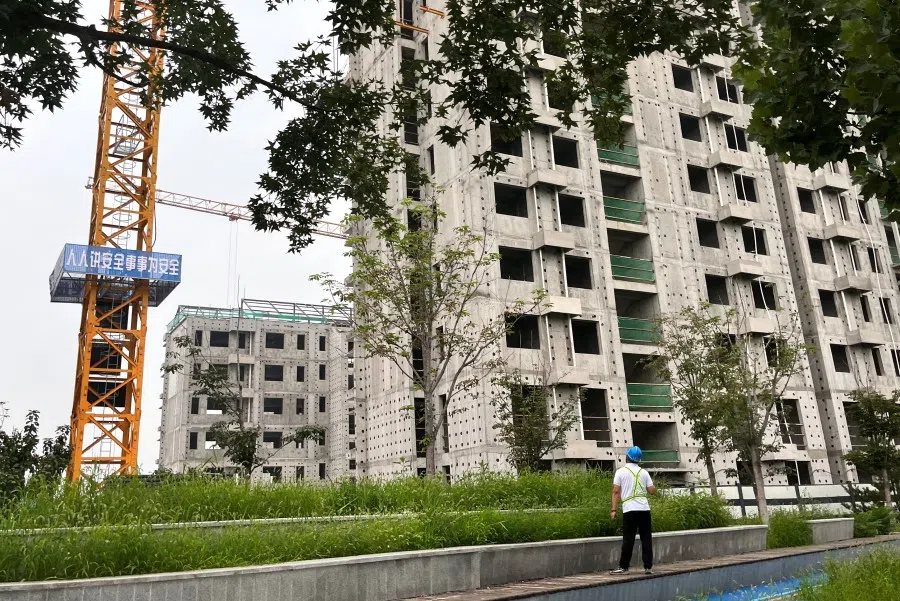
In Shanghai, the resale residential property market went down in volume and prices in the second quarter of this year, while prices for new properties fell slightly by about 0.76% as compared to the year before. The number of viewings this year has also decreased somewhat as sales of newly completed units stayed below 5,000 units for two consecutive months, while the number of transactions in the resale market has stayed below the boom-bust line for four months in a row. However, anticipation of new government policy at the end of July injected some vibrancy back into the Shanghai resale residential property market and the number of resale transactions has been recovering slowly.
E-House Research Institute research director Yan Yuejin feels that amid the traditional "Golden September and Silver October" period, Shanghai property developers have become more aggressive in marketing their products, while after the government's policy direction was made clear, there is much greater interest from buyers and their purchase strategies have also become more clear-cut. There will be a significant uptick in the city's property transactions this September and this energy will continue with both the new and resale residential property markets set to put up strong performances.
In fact, the rush by the Chinese authorities to announce new residential property measures before September also signals its intent to recreate the "Golden September and Silver October" effect. Indeed, the impetus provided by the new government policies has caused signs of this to show in the residential property markets of Beijing and Shanghai.
Home buyers react
According to a report by the Beijing Youth Daily, following the announcement of the new policy, there was a clear increase in the number of units sold at a residential development project by the Beijing Construction Engineering Group as the number of property viewers increased from a daily average of dozens of groups to nearly two hundred groups in recent days. Currently, there are only units left for sale in two blocks of the project.
Separately, people were also seen queuing up outside the sales office of another residential development project in Beijing's Fangshan suburb. A project staff said that 35 units were sold within 24 hours of the new government policy announcement as the number of viewers they received nearly doubled on the day following the announcement.
The China Securities Journal also cited Zhang saying that 1,200 resale residential units changed hands in Beijing on 2 September, an increase of more than 100% over the previous week. On the same day, more than 1,800 new units were sold, while there were only 3,100 such transactions published online in the whole of August. "The policy had an immediate effect."
Many residential property development projects in Shanghai are also seeing a surge in the number of property viewers and sales in excess of 100 million RMB.
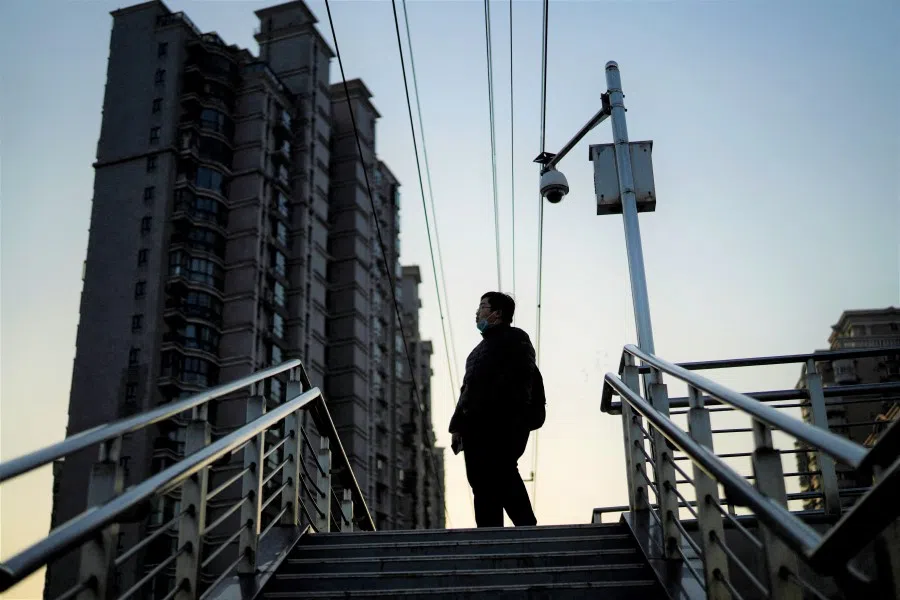
Shenzhen's property market is also warming up. Zeng Fan from Leyoujia property agency in the Futian district of Shenzhen said that on 2 September, three resale transactions were completed at his outlet alone, while five transactions were completed in total during the whole of August across all six outlets in the area.
Many residential property development projects in Shanghai are also seeing a surge in the number of property viewers and sales in excess of 100 million RMB. China Merchants Property sold more than 180 million RMB worth of residential units in Shanghai between 2 and 3 September. And of the two residential projects belonging to Poly Real Estate in Shanghai, one generated sales of 160 million RMB, while the other brought in 110 million RMB in sales over the same two-day period.
On 5 September, online property search provider 58 Anjuke published its August 2023 China housing index report. In the 65 major Chinese cities that it watches, overall searches for new residential units rose by 6.1% month-on-month. More specifically, searches for new residential units grew by 8.0%, 5.9%, and 5.2% month-on-month in first-tier, second-tier, and third and fourth-tier cities respectively.
... the authorities' recent policies... are a shot in the arm for the ailing Chinese property market and may stimulate sales, especially in first and second-tier cities.
Zhang Bo, head of 58 Anjuke, feels the latest loosening of property restrictions is an indication that the Chinese property market has bottomed out. The policy moves to increase demand from those buying properties to live in will undoubtedly stoke interest in the property markets of first-tier cities, paving the way for other cities in the country to follow suit.
Clearly, the authorities' recent policies to lower interest rates on housing mortgages and allow first-home buyers regardless of loans are a shot in the arm for the ailing Chinese property market and may stimulate sales, especially in first and second-tier cities.
Too early to say recovery on the cards
Nonetheless, it is still too early to say that the Chinese property market will recover quickly.
Since 2020, the Covid-19 pandemic and increasingly heavy pandemic measures have dealt a severe blow to the Chinese economy and its property market has not been spared. In the last two years, previously rich and powerful property developers like Evergrande and Country Garden fell into crisis, further eroding public confidence in the property market.
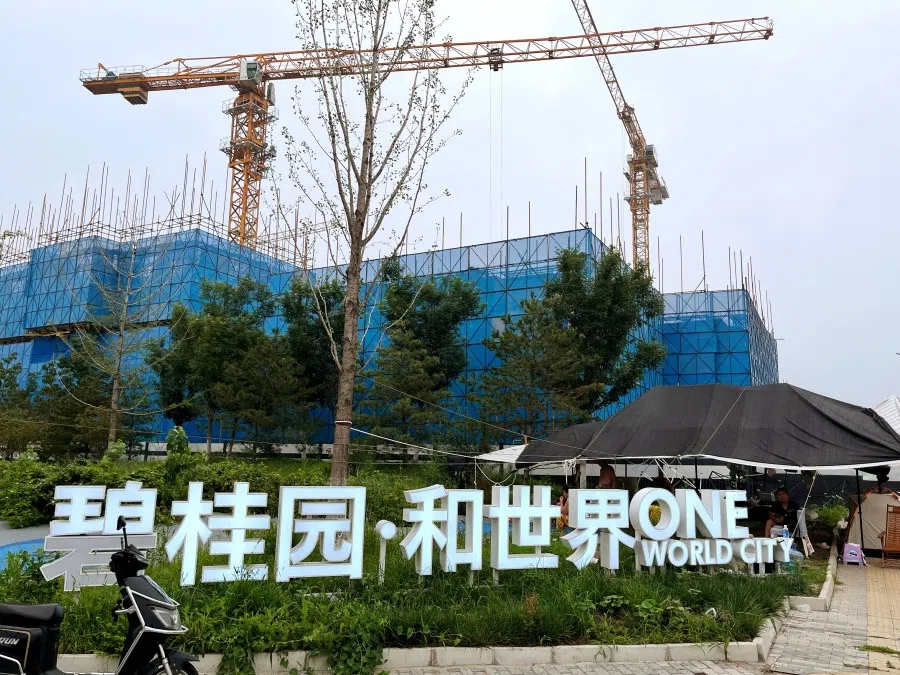
This year, there has been considerable downward pressure on the Chinese property market. In the first seven months of this year, indicators such as investment in real estate development, total floor space of residential units sold, and funds available to property developers have declined, while sales of residential units started to grow year-on-year in March but contracted again in July.
Unsold residential units means that many property developers cannot repay their loans and may find themselves in a financial crisis.
Estimates indicate that as of 18 August, out of the approximately 80 publicly-listed Chinese property developers that have disclosed their earnings forecast for the first half of 2023, more than 60% forecasted losses of amounts ranging from 1 billion to 55 billion RMB, with total forecasted losses in excess of 100 billion RMB.
The losers are not just well-known companies such as Jinke, Shimao Group, and China Fortune Land Development, but include state-owned and mixed ownership enterprises like China Jinmao, Sino-Ocean Group, Overseas Chinese Town Group, Gree Real Estate, Beijing Capital Development, Huayuan Property.
Bloomberg data shows that as of 1 September, 34 out of the 50 Chinese private property developers accounting for the most dollar bonds issued in the US have defaulted on their offshore debts.
China Real Estate Business reported that pessimism is growing in the property market despite the strong policy stimulus. A staff at a property company said distressed developers will basically not benefit from the new policies, amid poor sales and a worsening refinancing environment. Despite verbal support from the regulatory authorities, no financial organisation is currently willing to finance endangered developers in urgent need of funds, without which these companies may run into cash flow troubles.
A recent report from the National Institution for Finance and Development showed that in the first half of 2023, 25 property developer bonds amounting to 18.68 billion RMB went into default as they were unable to pay creditors the principal and interest or resale payment and interest on time; 74 property developer bonds amounting to 115.84 billion RMB were rolled over. Most property developers continue to face considerable debt pressure in the second half of 2023, especially since recovery in refinancing and sales continues to fall below expectations. As such, the risk of loan defaults remains high.
...its slump will drag on the recovery of a host of other industries, which in turn would hinder economic expansion and make it less likely that the official target of 5% economic growth for 2023 will be met.
More strong moves?
Over the past 20 years, the Chinese property market has grown rapidly to become a pillar of economic growth with property prices rapidly soaring. While developers, speculators, and the government benefited immensely, many became enslaved by heavy mortgage loans, and sky-high residential property prices have become a source of discontent in Chinese society.
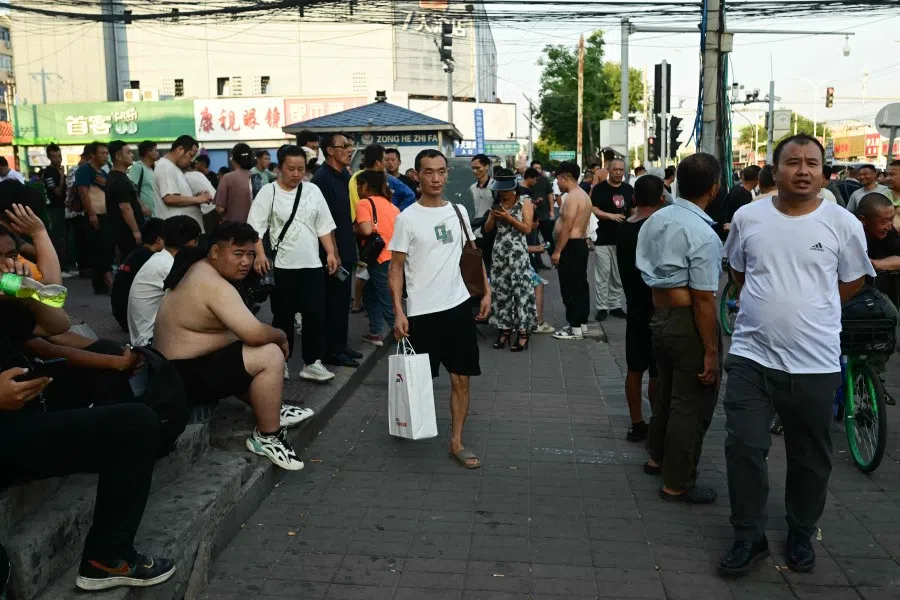
In recent years, Chinese leaders often emphasised that "houses are for living in, not speculation", with local governments, especially those in first and second-tier cities, rolling out various measures to curb demand and cool the feverish property market to avoid an out-of-control property bubble that could cause a financial crisis.
However, the slowdown in the Chinese economy and the persistently high unemployment rate over the last few months have forced the Chinese leadership to use stronger measures to boost economic growth. While the authorities do not want an overheated property market, its slump will drag on the recovery of a host of other industries, which in turn would hinder economic expansion and make it less likely that the official target of 5% economic growth for 2023 will be met.
The recent strong moves by the Chinese government signal the end of policies that restrict mortgage loans, and "houses are for living in, not speculation" is taking a back seat as rescuing the market becomes its short-term priority.
If current measures still cannot resuscitate the property market, the authorities may continue to make major moves, such as relaxing property purchase restrictions in first- and second-tier cities like Beijing and Shanghai. If the property market continues to trend downward, banks will face financial risk, and unemployment will be trickier.
While a loosening of controls in first- and second-tier cities may stimulate local property markets, it may also siphon buying interest away from third- and fourth-tier cities, aggravating the overall market situation. As such, while the new government policies may stimulate the property market in the short run, how well they work and whether they can help the market recover need to be observed further.
This article was first published in Lianhe Zaobao as "中国房地产市场能否复苏?".



![[Big read] When the Arctic opens, what happens to Singapore?](https://cassette.sphdigital.com.sg/image/thinkchina/da65edebca34645c711c55e83e9877109b3c53847ebb1305573974651df1d13a)
![[Video] George Yeo: America’s deep pain — and why China won’t colonise](https://cassette.sphdigital.com.sg/image/thinkchina/15083e45d96c12390bdea6af2daf19fd9fcd875aa44a0f92796f34e3dad561cc)
